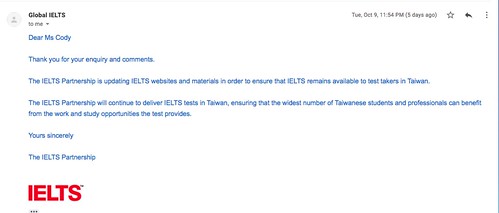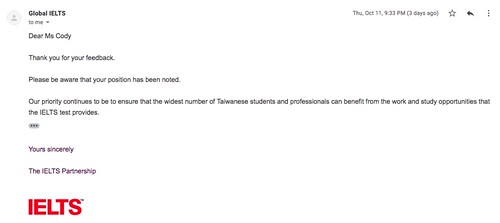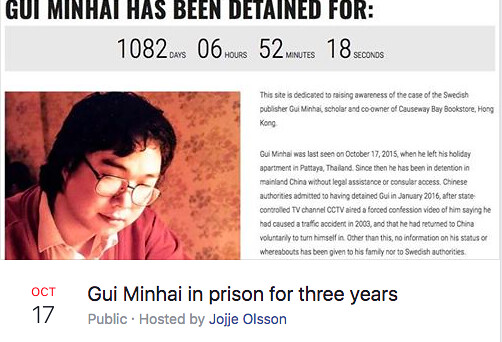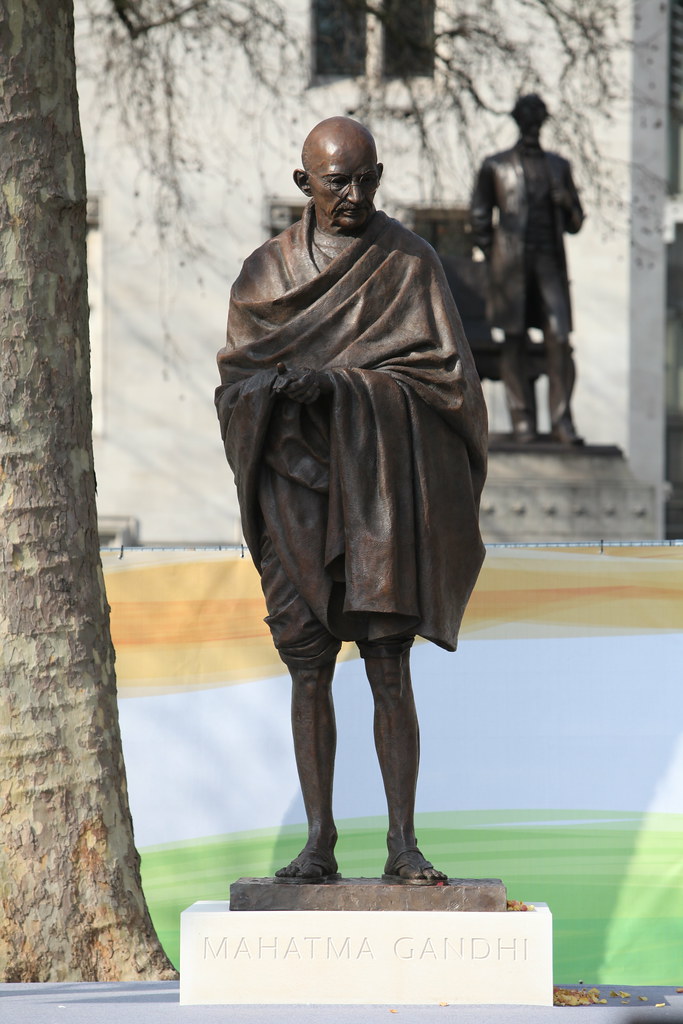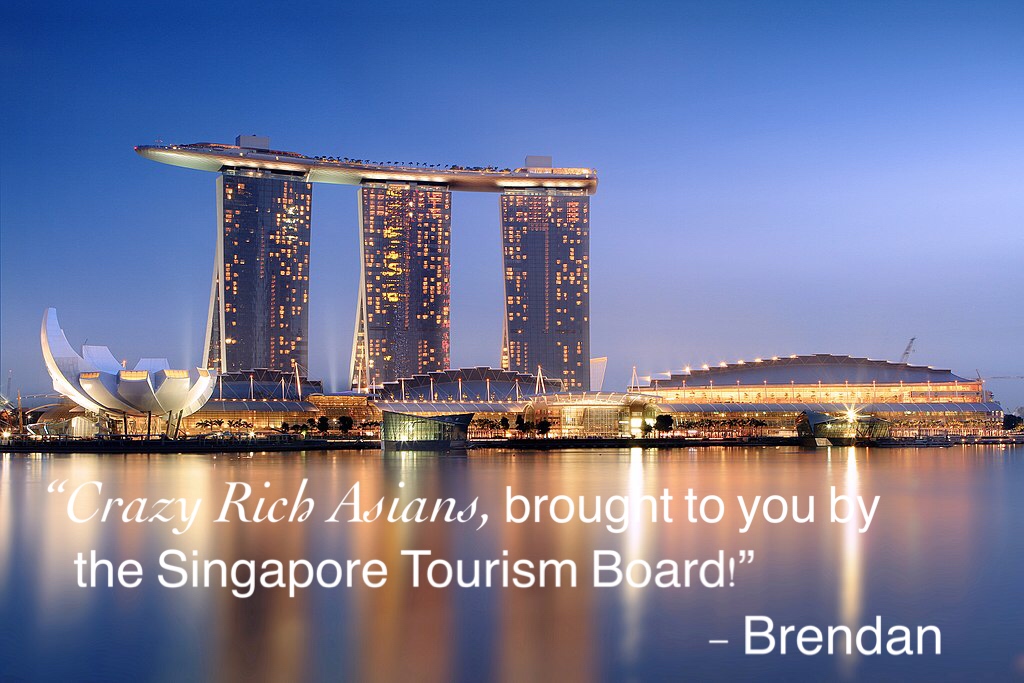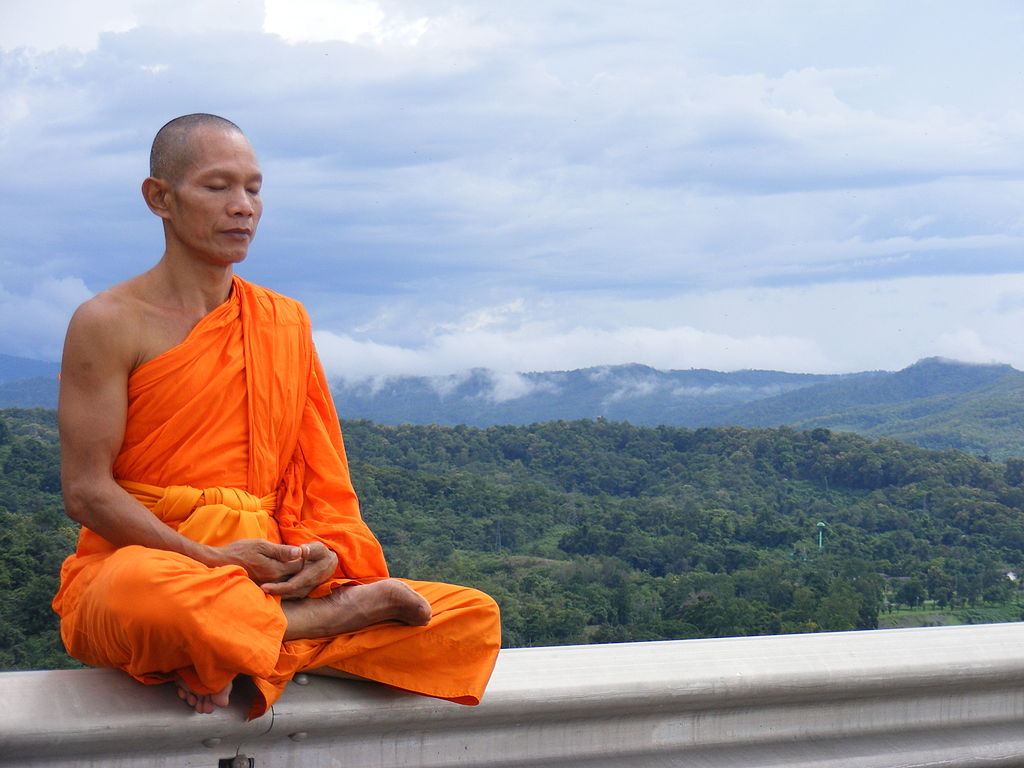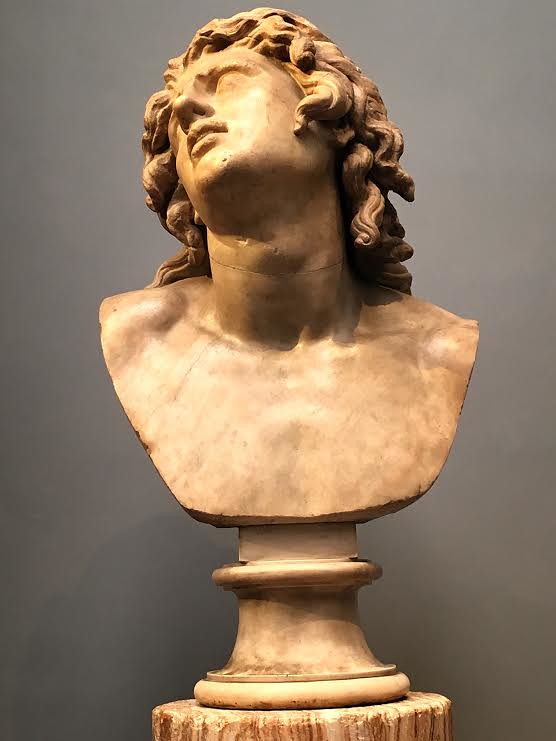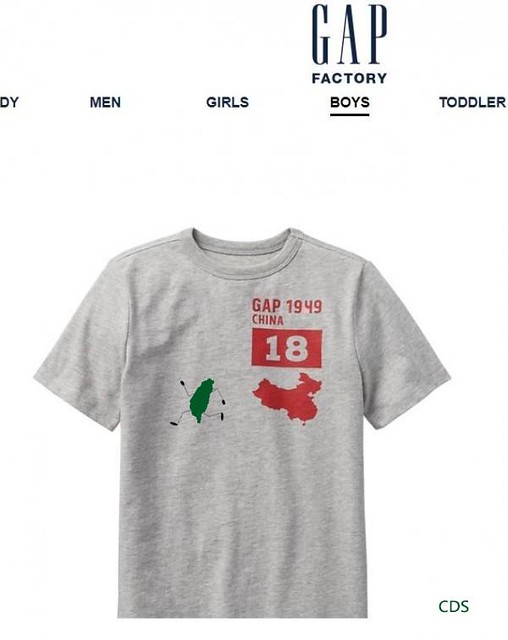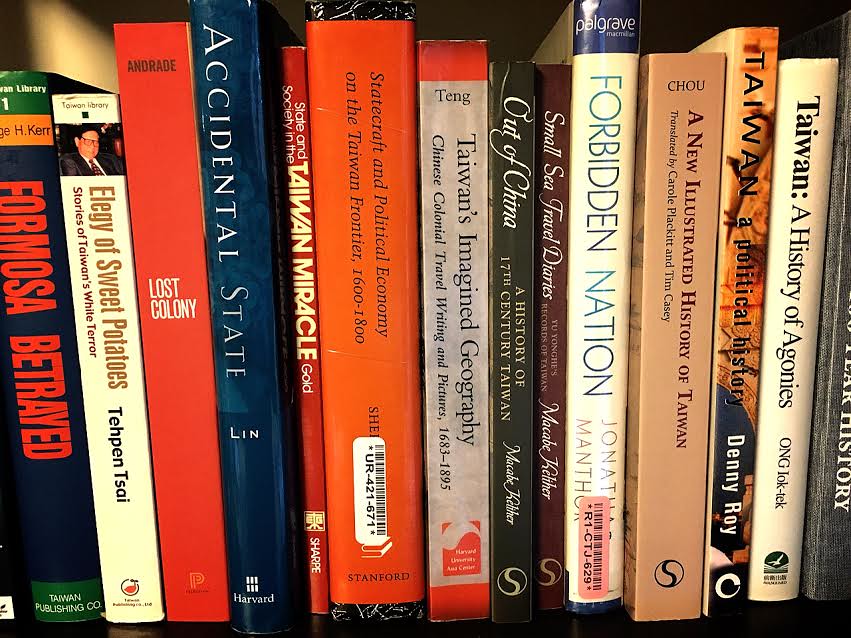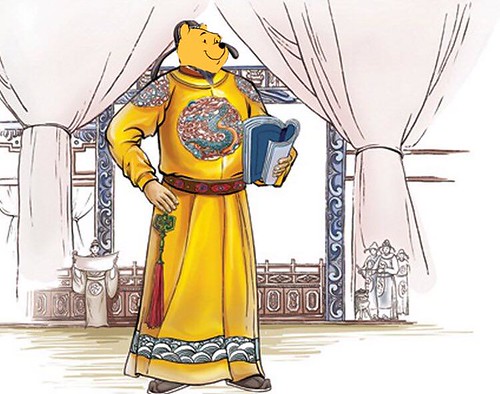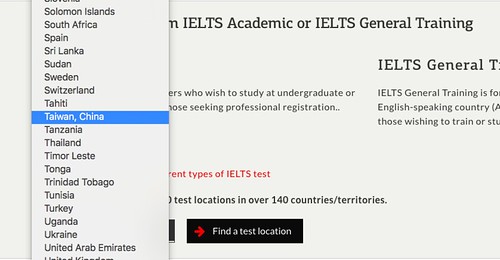 |
| Jerks. |
As my husband noted in his nail-on-the-head post on the same topic, pretty much every IELTS teacher and examiner we know is horrified by the change on IELTS's website of "Taiwan" to "Taiwan, China" (Notably, Hong Kong and Macau bear no such designation. If I didn't already know this was all about politics, I'd say that's odd).
Many of us have written to IELTS to protest the change, including me. I'd include a screenshot, except that e-mail contains references to the nature of my employment which I cannot divulge, but which when blacked out render the letter incoherent. Suffice it to say, it was an angry but basically formal letter of protest and complaint.
We all got the same completely irrelevant form letters in reply, which didn't actually address the issue we wrote about:
You can write to them too, by the way, their email is globalielts@ielts.org. See if you get the same bogus form letter! It'll be a fun international discourse comparison!
Of course, I wrote back to point out that their form letter reply was irrelevant to the protest lodged and got a snottier, though I suppose more relevant, reply:
This is where I got a little testy. I'd say "I have a short temper", but several days on I decided to send this anyway. It won't make a difference, so please enjoy it as a retort created for your entertainment:
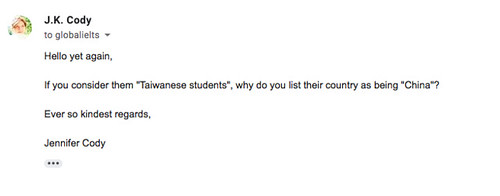 |
| "If you consider them 'Taiwanese students', why do you list their country as being 'China'?" |
Here's the thing. I know perfectly well that we're probably not going to win this, because The Man doesn't care about our tinny complaints. It pretends to be apolitical while taking a political, pro-Beijing position. And that is what you're doing when you list Taiwan as "Taiwan, China": you are taking a political position. You are saying Taiwan is a part of China, a position most Taiwanese do not agree with.
It's hard to fight the power, which as a friend pointed out, is the entire point of having power - so it's harder for people to fight you. IELTS pretends to be a dispassionate language proficiency test, but it's also a source of power: are you a non-native speaker who wants to study in the UK (or other countries) or get certain kinds of visas? You have to take it. It's tied to the government through British Council and the UKVI service. That's power. It's not just a test.
It wants to think it's not The Man, but it absolutely is. And as The Man almost always is, IELTS is wrong.
For me, this is the point at which "Taiwan, China" stops being an abstraction: it's not just an unfair, stupid thing that terrible companies do for money. It affects me personally: I'm associated with the brand. Some of my income comes from them. If I refuse to accept this, there is a real impact on my life, moreso than boycotting airlines or slagging off TOEFL. I don't earn money from those companies. I don't know how I can take dirty money now, so for the first time in a very long time, I'm faced with a choice between a chunk of my income, and my principles.
As China expands its forcefulness, more people like me will start facing that choice. I have to hope enough of them will choose principles, as I'm headed towards doing, but I know that many won't.
This isn't a small issue relegated to Taiwan and China. It affects people like me. It affects international workers and foreign residents.
And, as Brendan pointed out in his excellent post (which you should absolutely read), IELTS is essentially helping China accomplish its political goals, which serve as precursors to its military goals:
The government of the PRC would like nothing more than to take over Taiwan and incorporate it into their territory....This is not the ranting of a conspiracy monger -- China isn’t even trying to hide its intentions.
Whether China takes Taiwan by force or by “peaceful” coercion, it doesn’t want the rest of the world to see it as a larger country taking over a smaller, less powerful country. That would look very bad. Instead, China wants the rest of the world to see Taiwan as a recalcitrant part of China that needs to be brought to heel. That’s why (among many things) it’s got people pushing to change “Taiwan” on those drop-down menus to things like “Taiwan, China” or “Taiwan, Province of China”. It’s all about changing the world’s perception of Taiwan so that if Invasion Day comes, the rest of the world doesn’t see Xi Jinping as another Hitler invading Poland.
And every airline that lists Taiwan as China and every educational institution that forces students to declare their country as “Taiwan, China” is complicit in this. With Beijing -- not politically neutral.
I don't know how to fight that. I don't know how to tell you to fight that. I'm still weighing my options, although I know that not acting is not an option. I don't know what to tell my students, except not to take IELTS.
I know some Taiwan-based examiners read this blog. I know a lot of Taiwanese do, too. I don't know what to tell you.
I considered suggesting a strike, and still think that might be a possibility. I worry, however, that it will hurt local centers like IDP Taipei, who are not our enemies (I suspect a lot of the local employees of IELTS centers are on our side, in fact) without really hurting IELTS as a global organization. It might be our best shot, however, at getting this story to stay in the news and embarrass IELTS as much as possible.
I considered a petition, but TOEFL ignored the one directed at them, and IELTS will too. That's what The Man does - he ignores petitions, because he has power.
I considered saying you should change your scripts and say explicitly that Taiwan is NOT CHINA, but that could hurt candidates' performance and that's not fair. It's not their fault (even with the Chinese candidates, it's not their fault at all that their government sucks).
Of course I will continue to encourage Taiwanese students not to take the test.
Something more should be done, but the result has to hurt IELTS Global. What should that something be? I don't know yet. But I have no intention of going away and I have no intention of quietly choosing money over principles.
All I can say is that I encourage you to organize (and feel free to get in touch with me, by the way. I'm easy to find). Be creative, and don't back down. The Man usually wins, but that doesn't mean you have to sit down and obey meekly.
I wish I had better advice, though. I'm not sure what the next move will be, but I can assure you we're not done here.

